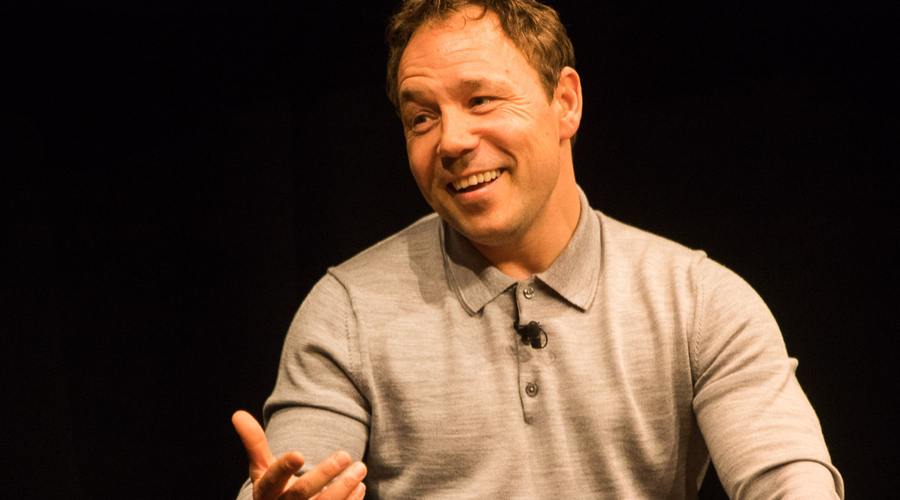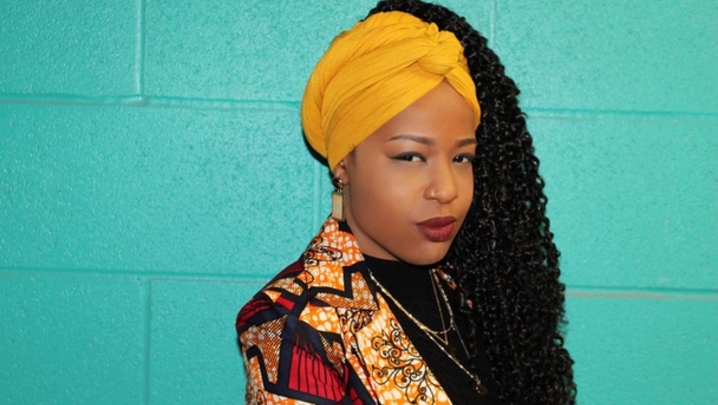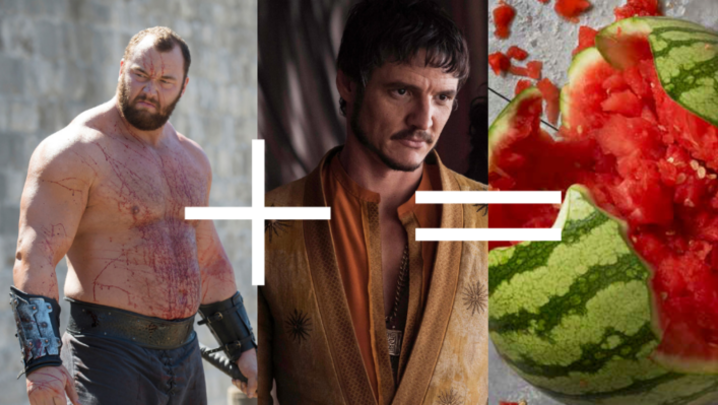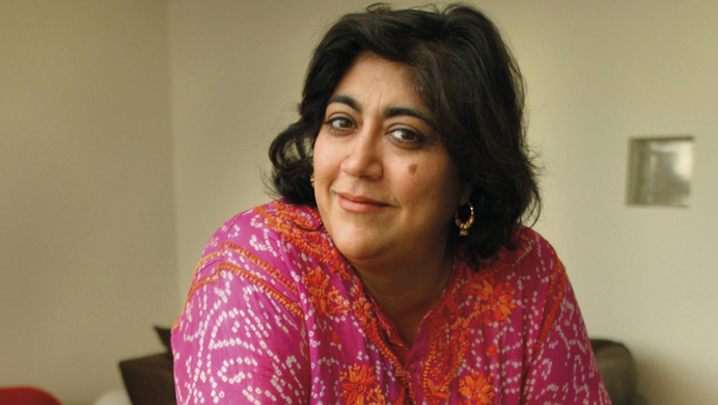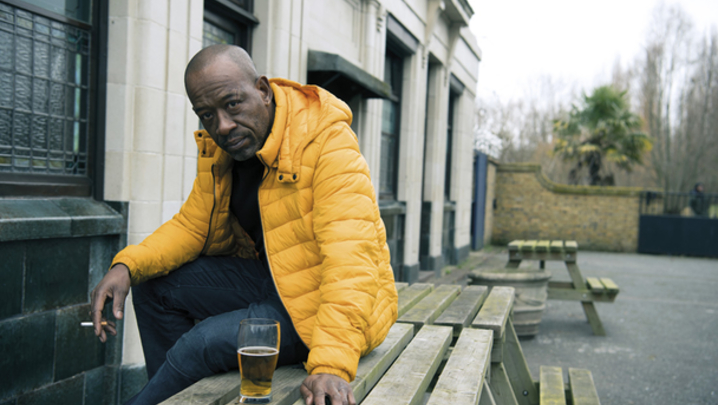Matthew Bell enjoys an RTS event showcasing the career of the prolific British actor Stephen Graham
Over the past couple of decades, Stephen Graham has become increasingly hard to avoid on both TV and film. The variety of roles he’s taken on is extraordinary. He can play cops and robbers, modern and period drama, ordinary and larger-than-life characters. He is convincing in all of them.
Finally, at last year’s RTS Programme Awards, Graham received the recognition he has been due for many years when he took the Actor award for his portrayal of the detective who investigated the murder of the Liverpool schoolboy Rhys Jones, in ITV’s harrowing real-life drama Little Boy Blue. The judges described his performance as “unquestionably brilliant, showing extraordinary range and skill”.
Graham looked back over a career that has taken in some of British TV’s grittiest parts – and some meaty mobster roles across the Atlantic – at an RTS early-evening event in February. He was in conversation with Alice Feetham, his co-star in the Sky Atlantic thriller Save Me.
The award-winning actor, who was born in Kirkby, a satellite town of Liverpool, first trod the boards at primary school, when he played Jim Hawkins in a version of Treasure Island. He was spotted by Andrew “Drew” Schofield, a local actor who played the title role in Alan Bleasdale’s Channel 4 drama Scully, concerning a teenager who dreams about playing for Liverpool FC. Schofield was in the audience to watch his nephew perform in the play – the first of many pieces of “luck” that Graham said actors need at some point in their careers.
“Drew said to my mum and dad that he thought I had some talent and that they should look at getting me to the Everyman Youth Theatre [in Liverpool] – and that’s what we did. It started from there,” recalled Graham, who added: “Drew was the inspiration for me being an actor.”
"You can learn a lot from drama school, but you can learn much more when you’re working"
His first paid teenage acting job was in Children’s Ward, which was developed for ITV by Paul Abbott and Kay Mellor, then at the very start of their writing careers.
Other early TV appearances included ITV cop series The Bill. “It was great because it gave you on-the-job training – part of your apprenticeship. You can learn a lot from drama school, but you can learn much more when you’re working,” said Graham.
The actor went to drama school in London, but doubted whether it is a “necessity nowadays”. “And, let’s be completely honest, is it affordable for most people? I would love everybody to have the opportunity to go but, if I hadn’t had a grant, I wouldn’t have been able to go.”
However, when asked by a member of the RTS audience whether he had a view on the advantages enjoyed by “Oxbridge/Eton-ite” actors over those from a working-class background, Graham responded: “No – everyone has got to make a living.”
Although he talks broad Scouse, Graham made his name as the cockney boxing promoter Tommy in Snatch, Guy Ritchie’s 2000 comedy crime flick. “Snatch was a joy to do – it was a lot of fun,” he said. “It did dramatically and drastically change my life – and all for the good. It gave me much broader opportunities and the chance to go for many different [parts].
“There was a part of me at the very beginning [that thought] this is me and [Liverpool] is where I’m from – and authenticity is beautiful. I’m very proud of where I come from.”
But he did not want to be typecast: “[I thought] learning to do different accents could hopefully open doors for me and give me different opportunities.” In fact, he is a virtuoso at accents, treating the RTS to impersonations of some of the acting greats he’s worked with, including Al Pacino and Robert De Niro.
Graham had a small part in Martin Scorsese’s 2002 movie Gangs of New York. Almost a decade later, he played Al Capone in Scorsese’s HBO series Boardwalk Empire. The actor, though, was adamant “that there was no conscious decision to [try and be] a success in America – that was never my objective.”
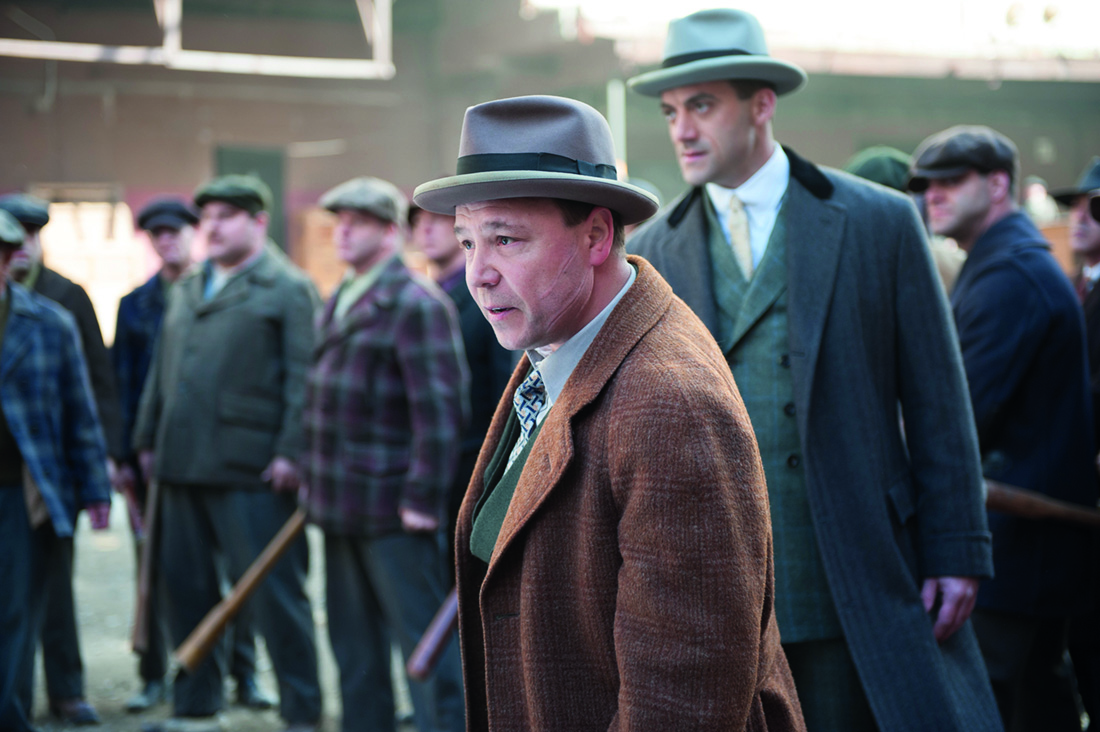
But working on the other side of the Atlantic was an opportunity that Graham “grabbed with both hands”. “For a young lad who grew up in Liverpool, who always wanted to be an actor, to be given the opportunity to play Al Capone was amazing,” he said. Back in the UK, it is gritty dramas – of the type he used to watch as a child – that pepper his career. “I was brought up on fantastic drama in this country, the likes of [Alan Bleasdale’s] Boys from the Blackstuff and [the BBC’s] Play for Today. I used to watch that kitchen-sink type of drama, which I used to adore, with my dad. I always wanted to do that kind of work.”
British drama has given Graham some of his best roles, including the skinhead Andrew “Combo” Gascoigne in Shane Meadows’ 2006 film This Is England and its later TV incarnation on Channel 4 (see box, page 25). “If I’m honest, that particular job was where I grew up as an actor. It really [helped me to] understand the [acting] process completely,” he said. “I really learned how to dive into a character.”
He was then nominated for the Actor prize at the 2010 RTS Programme Awards for his role as the alcoholic bookie, Shay, in Jimmy McGovern’s RTS award-winning BBC One drama The Street.
Most recently, he has appeared in Save Me, which was created and written by its star, Lennie James. Graham plays troubled Fabio “Melon” Melanzana, with Feetham cast as his much-younger wife, Bernie. He is also in the latest instalment of Jed Mercurio’s police corruption thriller Line of Duty.
In keeping for a series known for guarding the secrets of its dizzying plot turns, nothing is known of his criminal character, John Corbett, other than the teaser released by the BBC. This shows the actor pulling off a black balaclava. Pressed for further details, Graham confirmed only that: “He wears a balaclava.”
Later this year, Graham will star in Scorsese’s latest film, The Irishman, playing a mobster in the company of De Niro, Pacino and Joe Pesci. He has also reunited with Meadows for Channel 4’s The Virtues, in which he portrays a man with a troubled childhood.
Looking back over more than two decades in TV and cinema, Graham reflected: “This, to me, is not a job – I adore what I do.”
‘In conversation with Stephen Graham’ was organised jointly by the RTS and Premier Communications. It was held at Kings Place in central London on 18 February.
Stephen Graham on: making This is England with Shane Meadows
‘I love [Shane’s] way of working – it’s the drama school and Stanislavsky stuff, but it’s done practically, in a way you can all understand,’ said Graham. ‘You have a look at what’s on the page, as you do with every other director, but you’re creating a character from scratch.
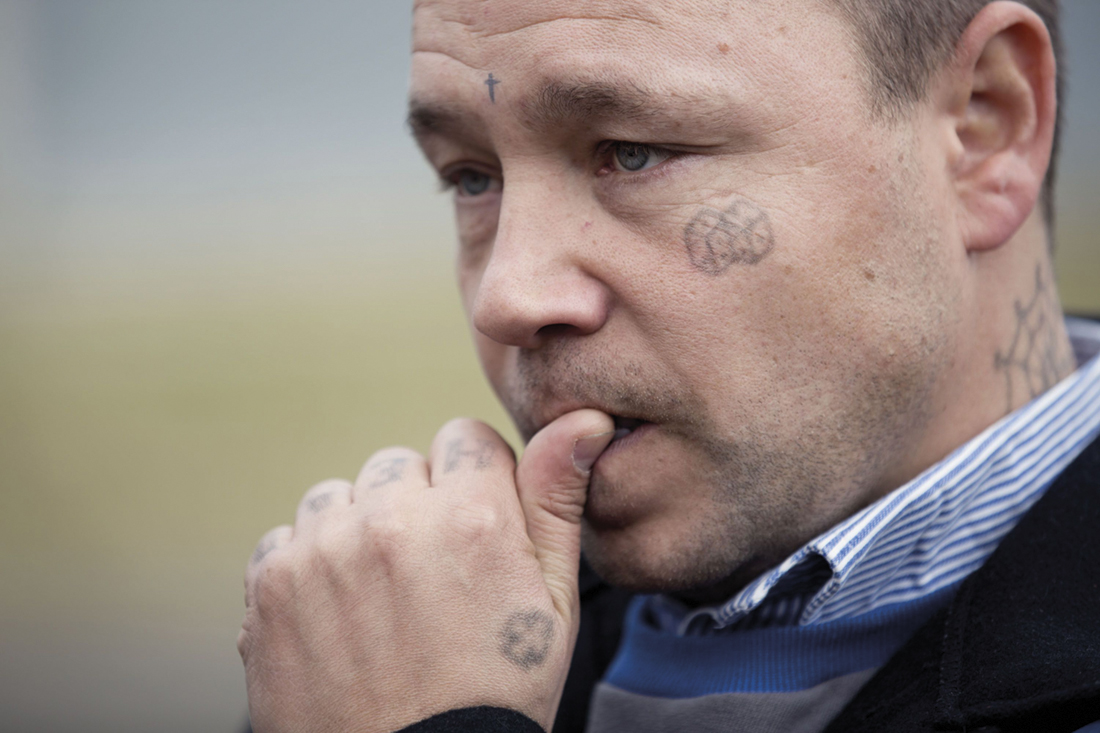
‘You do the background – where he was born, where he went to school, who is mum was, who his dad was, what his favourite colour is.
‘That’s how Shane works. You spend about a week doing that. Then, you spend time creating scenarios and possibilities of what may happen.’
In Meadows’ film about skinhead culture in early-1980s Britain, Graham played Andrew ‘Combo’ Gascoigne. Portraying a racist skinhead was problematic for Graham. ‘I’m mixed race – my granddad was from Jamaica; my nanna was Swedish on my dad’s side of the family.
‘I didn’t want to tell Shane that I was mixed race at the beginning because I thought, if I tell him, he’s not going to give me the part. We did a day’s workshop and, because I really wanted this part, I went for it proper. Some of the language I used was painful, but it was authentic because I’d been on the other end of it.’
Eventually, Graham told Meadows about his heritage. ‘There was silence,’ he recalled. ‘And then he said, “That makes it really interesting.’”
Four years later, Meadows brought This Is England to Channel 4, taking the stories of the characters from the original film through the late 1980s and into 1990. ‘I thought it was going to be a one-off film and, to be honest, at first I was very sceptical about turning it into a TV series,’ he said.
For This Is England ’90, Meadows used some of his trademark methods to help Graham get into character for the release of Combo from prison.
‘Shane set me an exercise. He took all my money off me, dressed me in [Combo’s] clothes, put the tattoos on my face that he’d got while he was in prison… and then he dropped me off in the middle of Sheffield,’ he recalled. ‘At that moment, I knew what it was like to feel invisible.
‘I could never have got that [feeling] from three years in drama school, but I got it from being on the streets… of Sheffield.… It was proper scary.
‘People were walking past me and completely ignoring me – I felt worthless. And that was the objective of the exercise – it was amazing.’
Graham on: Guy Ritchie
The actor first worked with Guy Ritchie on his 1995 short film, The Hard Case, the director’s calling card for his big-hit debut, Lock, Stock and Two Smoking Barrels.
He had accompanied a friend, who was auditioning for a tiny part in the short. ‘Guy popped his head around the door and said [to me], “It’s you next.” I said no, because I’d just come with my mate. But he asked if I was an actor and he called me in.’
Handed the script, Graham explained that he was dyslexic and would need time to read it. Offered the chance to improvise instead, Graham grabbed the opportunity: ‘We did a little bit of messing about and he said, “You’ve got the job and start on Monday.”’
A few years later, when Ritchie was casting for his second feature, Snatch, ‘He wasn’t seeing anyone who wasn’t a cockney,’ said Graham. ‘Apparently, he was watching something I had a little part in as a Scouse builder, but he was looking at this other lad to see if he wanted him for the role of Tommy. Then I popped up and he [obviously] remembered me.
‘I walked in [to the audition] and pretended I was a cockney. And he let me pretend I was a cockney. He asked me where I was from and I said Beckenham, because I lived in Beckenham, and Guy went, “No you’re not – you’re pure Scouse. I’ve worked with you before.” But, anyway, I got the job.’
Almost two decades after the film’s release, Graham said it ‘gave me an opportunity to be a part of a successful film for the very first time. It was an amazing honour for me.’

